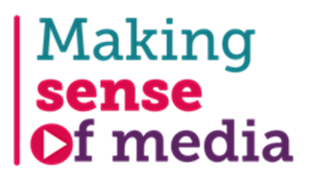Making Sense of Media (MSOM) is Ofcom’s programme of work to help improve the online skills, knowledge and understanding of UK adults and children. In December 2021, they published their Approach to Online Media Literacy, detailing priorities across five pillars of work (engage, initiate, establish, evaluate, and research).
On May 31, Ofcom published an update on the evaluate pillar of their Making Sense of Media programme and on June 13, the report ‘Initiate: what works in delivering community programmes was published.
The recently published update on the evaluate pillar of MSOM work outlines a number of challenges and barriers to evaluation of media literacy initiatives including:
– Funding
– Frameworks and definitions
– Participant engagement
– Motivation
– Nature of the sector
– Pace of change in the sector
A key feature of the work undertaken by MSOM in relation to the evaluate pillar is the development of a toolkit that will consist of guidance for the evaluation of media literacy initiatives with a focus on the three key stages of conducting an evaluation: designing; applying; and learning and sharing. There will also be a searchable evidence library which will give practitioners insight into what works and doesn’t work for media literacy initiatives, alongside relevant media literacy research from Ofcom and others.
The ‘design’ section of the toolkit will be published as an interactive module embedded within the toolkit and will take practitioners through the steps of planning and designing an evaluation.
As part of the the ‘Apply’ section reference materials for several evaluation methods and techniques will be provided such as surveying, conducting interviews, and doing quantitative analysis. These materials may help practitioners to understand the benefits, risks, and process of using these techniques and methods in their evaluation.
The ‘Learn and Share’ section of the toolkit will provide guidance and recommendations about what to do with an evaluation in order to encourage practitioners to consider sharing their evaluation by uploading it to MSOM searchable evidence and research library.
The MSOM toolkit will also include a searchable media literacy evidence and research library which will give practitioners insight into what works and doesn’t work for media literacy initiatives. This library will comprise general information about a range of initiatives, evidence of evaluations where they exist, and general media literacy research.
Ofcom welcomes views and opinions on this update and invites comments to MSOM@ofcom.org.uk.
The ‘Initiate’ report that was published on June 13 sets out the findings of a rapid research project to uncover examples of best practice in skills interventions at a local level.
The overall key learning is that local communities require local solutions and must therefore be involved in creating and delivering these solutions. In essence, the community needs to teach itself, and the provider’s role is to create the right conditions for that self-learning. The report outlines the following seven principles and associated recommendations:
1. People are not ready to learn, just because you are ready to teach
2. Behaviour change is a process, not a transaction
3. What you think a community needs, and what they actually need, can be very different things
4. Communities won’t listen to people they don’t know or trust
5. Empowered communities are learning communities
6. Support community-led innovation through flexible delivery
7. The funding model can make or break a programme of learning
